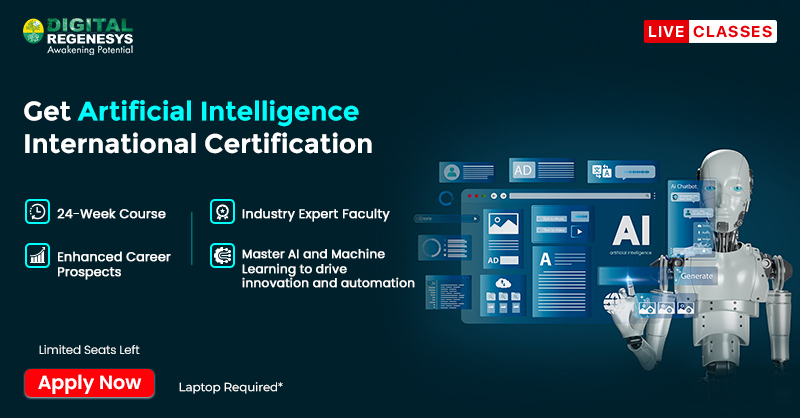10 Best Career Paths of AI

Artificial Intelligence (AI) is transforming the way businesses operate across various industries, including healthcare, finance, retail, and logistics. As companies increasingly adopt AI technologies for automation, analysis, and decision-making, the demand for skilled professionals continues to grow.
In this article, we will explore the 10 best career paths of AI, highlighting key responsibilities, required skills, and the impact of each role. Understanding these careers can help you make informed decisions about your future.

1. AI Engineer
AI Engineers are professionals who design, develop, and deploy AI systems that can perform tasks traditionally requiring human intelligence. They bridge software engineering and machine learning, ensuring AI solutions function efficiently within organisational workflows.
They collaborate with data scientists to implement models that are accurate, scalable, and reliable. AI Engineers also test and optimise systems to adapt to changing requirements, often using programming languages and AI frameworks to develop practical solutions that support business operations.
Here are the primary responsibilities of an AI Engineer:
- Designing AI models and algorithms tailored for real-world tasks.
- Integrating AI systems into existing software or platforms.
- Collaborating with cross-functional teams to enhance system efficiency.
- Monitoring model performance to ensure accuracy and reliability.
- Optimising AI systems for scalability and user-friendliness.
Discover information on How to Become an AI Engineer in India.
2. Machine Learning Engineer
Machine Learning Engineers specialise in creating algorithms that allow machines to learn from data and improve without explicit programming. They design predictive models, automate processes, and enable intelligent decision-making in organisations. These engineers work closely with data scientists to implement models into software solutions.
They also analyse datasets to ensure models are accurate and efficient. Machine Learning Engineers continually refine algorithms to improve results and explore innovative approaches to solve complex problems using AI.
Key tasks include:
- Designing and implementing machine learning models for various applications.
- Training models with structured and unstructured data.
- Testing and optimising algorithms for efficiency and accuracy.
- Collaborating with engineers to integrate models into products.
- Researching new machine learning techniques to enhance performance.
3. Data Scientist
Data Scientists analyse large and complex datasets to extract meaningful insights that help organisations make informed decisions. They combine programming, statistics, and domain expertise to understand patterns and predict trends. Data Scientists build predictive models, visualise results, and communicate findings effectively to stakeholders.
They also clean and organise data, making it usable for analysis. Their work supports strategic decision-making, enabling companies to improve processes, increase efficiency, and develop data-driven strategies.
Key responsibilities of a Data Scientist:
- Collecting, cleaning, and preparing large datasets for analysis.
- Applying statistical methods to uncover patterns and trends.
- Creating visualisations and reports to communicate findings.
- Collaborating with stakeholders to guide business strategies.
- Developing predictive models to support operational decisions.
Read about Why Do We Need Artificial Intelligence?
4. Robotics Engineer
Robotics Engineers design and develop intelligent machines capable of performing automated or semi-automated tasks. They integrate AI to create robots that adapt to their environment and operate efficiently.
Their work requires knowledge of mechanical, electrical, and software engineering. Robotics Engineers test and refine systems to ensure reliability and usability. They often collaborate with software developers, AI specialists, and hardware engineers to implement solutions that meet specific business or industrial needs.
Core responsibilities include:
- Designing robotic systems and prototypes for various applications.
- Programming robots to perform tasks autonomously or semi-autonomously.
- Testing and refining robotic systems to ensure reliability.
- Integrating AI algorithms for intelligent behaviour.
- Maintaining and upgrading robotic systems to improve efficiency.
Check out What is Generative AI?
5. AI Research Scientist
AI Research Scientists investigate new methodologies and technologies to advance artificial intelligence. They explore deep learning, neural networks, and other AI techniques, conducting experiments to validate theories and models.
Their work contributes to academic knowledge and practical applications. Research Scientists often publish findings, collaborate with industry experts, and translate theoretical concepts into solutions that can be implemented in real-world scenarios. This role requires strong analytical skills and a passion for innovation.
Key tasks include:
- Conducting experiments to test new AI models and theories.
- Developing advanced algorithms and methodologies.
- Publishing research findings in conferences and journals.
- Collaborating with academia and industry for knowledge exchange.
- Translating research into practical AI solutions.
6. Natural Language Processing (NLP) Engineer
NLP Engineers focus on enabling machines to understand, interpret, and interact using human language. They develop algorithms for speech recognition, text analysis, and language translation.
Their work powers applications like chatbots, virtual assistants, and summarisation tools. NLP Engineers must have skills in programming and linguistics, combining AI knowledge with language processing expertise. They test and optimise models to ensure accuracy, delivering intelligent solutions that improve user interactions with technology.
Key responsibilities include:
- Developing algorithms for speech and text processing.
- Implementing chatbots and conversational AI systems.
- Enhancing machine translation and summarisation tools.
- Testing and improving NLP models for accuracy and performance.
- Collaborating with linguists and engineers to refine language processing systems.
Get insights on What’s Inside an Artificial Intelligence Course Syllabus?
7. AI Product Manager
AI Product Managers oversee the development and delivery of AI-powered products, ensuring alignment with business objectives. They bridge the gap between technical teams and stakeholders, defining product vision, strategy, and success metrics.
Their role includes planning, coordination, and analysis to ensure products meet user expectations. AI Product Managers also monitor performance, gather feedback, and guide enhancements to improve functionality and value.
Key tasks include:
- Defining the vision and strategy for AI products.
- Coordinating teams of developers, designers, and engineers.
- Conducting market research to align products with user needs.
- Managing timelines and milestones for successful product delivery.
- Analysing performance metrics to improve AI solutions.
8. AI Ethics Specialist
AI Ethics Specialists evaluate the social and moral implications of AI technologies. They ensure that AI systems are fair, transparent, and accountable. Specialists develop ethical guidelines, monitor AI deployment, and advise stakeholders on responsible practices.
They also assess potential biases and societal impact, helping organisations adopt AI responsibly. This career requires knowledge of AI, ethics, and regulatory standards to ensure technology benefits society while minimising harm.
Key responsibilities include:
- Evaluating AI systems for ethical concerns, biases, and transparency.
- Developing guidelines and policies for responsible AI deployment.
- Monitoring AI applications to ensure compliance with regulations.
- Advising stakeholders on potential societal impacts.
- Conducting audits to maintain ethical standards in AI systems.
9. AI Solutions Architect
AI Solutions Architects design and implement AI systems tailored to business objectives. They integrate multiple AI components into cohesive solutions, ensuring compatibility with existing infrastructure.
This role requires technical knowledge, problem-solving skills, and the ability to translate business needs into AI solutions. Architects oversee system deployment, optimisation, and scaling to deliver effective AI-powered services and products.
Key tasks include:
- Analysing business requirements to propose AI solutions.
- Designing system architectures for AI integration.
- Overseeing the implementation and scaling of AI systems.
- Ensuring compatibility with existing IT infrastructure.
- Collaborating with technical teams to optimise system performance.
10. AI Consultant
AI Consultants guide organisations in adopting AI technologies to improve efficiency, decision-making, and operations. They assess business processes, recommend tools, and support implementation strategies.
Consultants ensure AI projects deliver value and measurable outcomes. Their work requires technical knowledge, analytical skills, and strong communication to bridge the gap between technology and business goals.
Key responsibilities include:
- Evaluating business processes to identify AI opportunities.
- Recommending AI tools, strategies, and workflows.
- Supporting implementation and team training.
- Monitoring performance and suggesting improvements.
- Helping organisations achieve measurable outcomes with AI.
Conclusion
The 10 best career paths of AI offer diverse opportunities in research, development, product management, ethics, and consultancy. Each role has unique skills and responsibilities, offering an opportunity to make meaningful contributions to technology.
To gain practical knowledge and hands-on skills, enrolling in an Artificial Intelligence Certificate Course can help prepare for these careers.
Begin your journey today and visit Digital Regenesys to explore courses that match your professional goals.
Last Updated: 29 September 2025